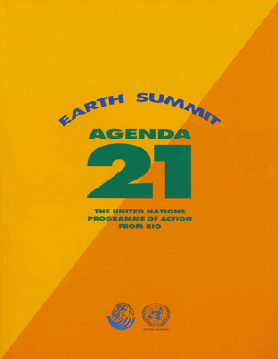
Agenda 21
Gematria Values
Agenda 21 is a non-binding action plan of the United Nations with regard to sustainable development. It is a product of the Earth Summit (UN Conference on Environment and Development) held in Rio de Janeiro, Brazil, in 1992. It is an action agenda for the UN, other multilateral organizations, and individual governments around the world that can be executed at local, national, and global levels. The "21" in Agenda 21 refers to the 21st century, and it is a comprehensive blueprint of action that is to be taken by every person on the planet to save the planet. The plan lays out a comprehensive blueprint of actions which are intended to be implemented by every person on the planet, including individuals, governments, and major groups, in every area in which humans directly affect the environment. In Hebrew, Agenda 21 is translated as סדר היום 21. In Spanish, it is known as Agenda 21, and in French, it is referred to as Agenda 21. The plan's built around 40 chapters divided into four sections: Social and Economic Dimensions, Conservation and Management of Resources for Development, Strengthening the Role of Major Groups, and Means of Implementation. Agenda 21 also addresses industrialization, poverty, and consumption patterns, and has led to the development of the Local Agenda 21 programs, which aim to implement the plan at the local level.
Wikipedia Information
